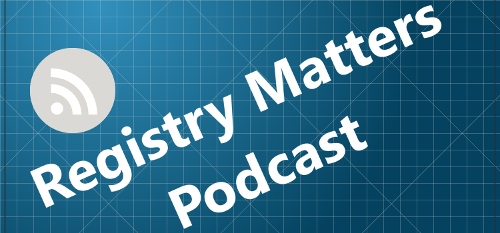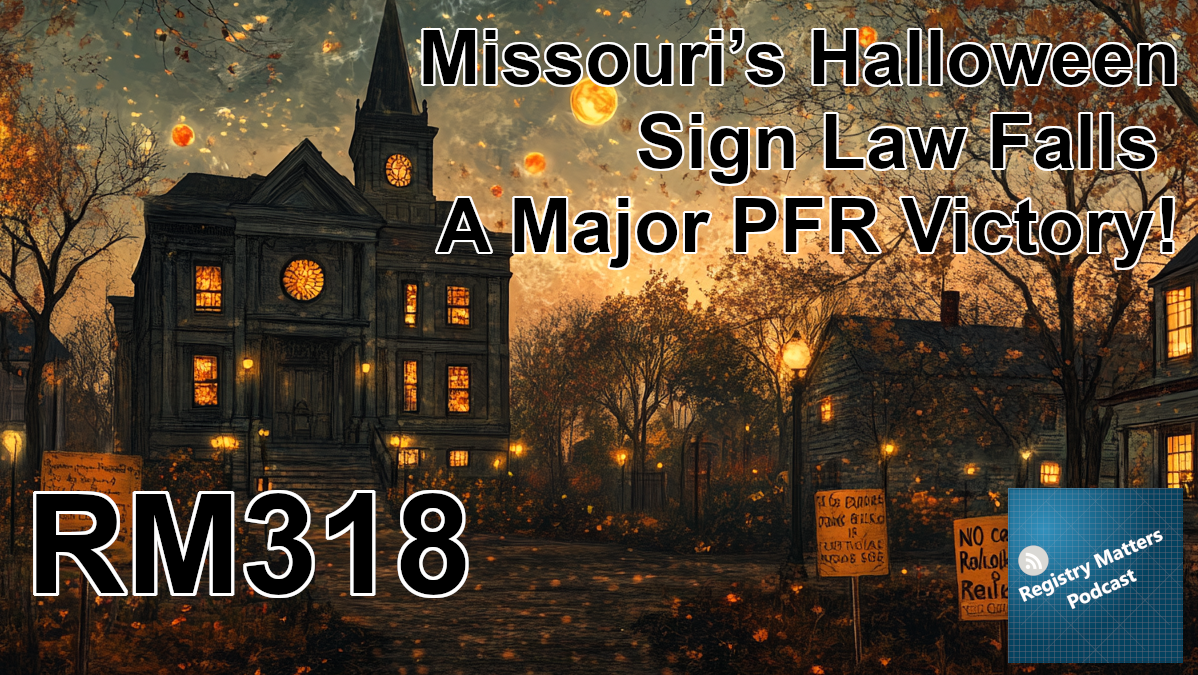In this episode, we analyze a recent court decision from the United States District Court of the Eastern District of Missouri regarding a law requiring PFRs (people required to register) to post signs at their homes on Halloween stating “No candy or treats at this residence.” The plaintiff, Thomas L. Sanderson, challenged the statute, arguing that it violated the First Amendment’s protection against compelled speech. Sanderson had been prosecuted for failing to post the sign, prompting the lawsuit.
The court ruled in favor of Sanderson, declaring the Halloween sign requirement unconstitutional. The discussion delves into legal concepts such as standing, compelled speech, and the implications of the ruling. The hosts also compare this case to similar challenges in other states, particularly in Georgia and California, where courts similarly ruled against signposting requirements for PFRs. The episode wraps up with speculation about potential appeals and the broader impact of this ruling on future cases.
[3:24] Larry’s General Rule: The case of Patrick Etheridge, the executive editor of the Albuquerque Journal, who was caught shoplifting despite his six-figure salary. The hosts humorously stress that someone earning that much should avoid stealing, and they highlight the irony that the newspaper had been advocating for harsher penalties for crimes like shoplifting, which Etheridge himself faced. [6:38] A listener questions whether certain migrants with prior PFR-type convictions avoid registering. The hosts clarify that if these migrants have a conviction with proper due process, they would be required to register once detected, but unregistered individuals remain undetected until verified. They also mention that equal protection claims don’t apply to force others to register but could be used to argue that one shouldn’t have to register in certain scenarios. [11:25] United States District Court of the Eastern District of Missouri [41:27] California Corner: Chance discusses the complexities of California’s registration requirements for individuals with out-of-state convictions. The main issue is determining whether the out-of-state offense is equivalent to a California registerable offense, which the California Department of Justice (CA DOJ) decides based on the specifics of each case. This process is often unpredictable, and individuals are advised to seek legal assistance to ensure compliance with California law. The conversation also highlights that individuals may receive credit for time spent on registries in other states.Leave voicemail: 747-227-4477
Email us: registrymatterscast@gmail.com
Support us on Patreon: https://www.patreon.com/registrymatters
Join the Discord server: https://discord.gg/6FnxwAQm57
Want to support Registry Matters with some swag: https://shop.spreadshirt.com/registry-matters
Apple Podcasts: https://itunes.apple.com/us/podcast/registry-matters/id1305039280
Google Play Music: https://play.google.com/music/listen?u=0#/ps/Icuxbpzvyti7wtoredipbtiojqy
RSS: https://www.registrymatters.co/feed/podcast/
Spotify: https://open.spotify.com/show/3d75P7Kc37n2l79m89F9KI
YouTube: https://www.youtube.com/registrymatters
The Registry Matters Podcast’s mission is to cover issues surrounding the Registry. We cover cases that will peel back the veneer of what we need to do to change our lives for the better. We cover news articles that spark conversations about the total insanity of this modern day witch hunt. This podcast will call out bad policy and call out those that are making bad policy.
To change things for the positive, we need to act. We are 6-7-8-900k strong. With that many people, plus their friends and family, over a million people are affected by the registry. We should be able to secure donations to hire lawyers and lobbyists to move the agenda in our favor. We need our people to be represented.


Leave a Comment